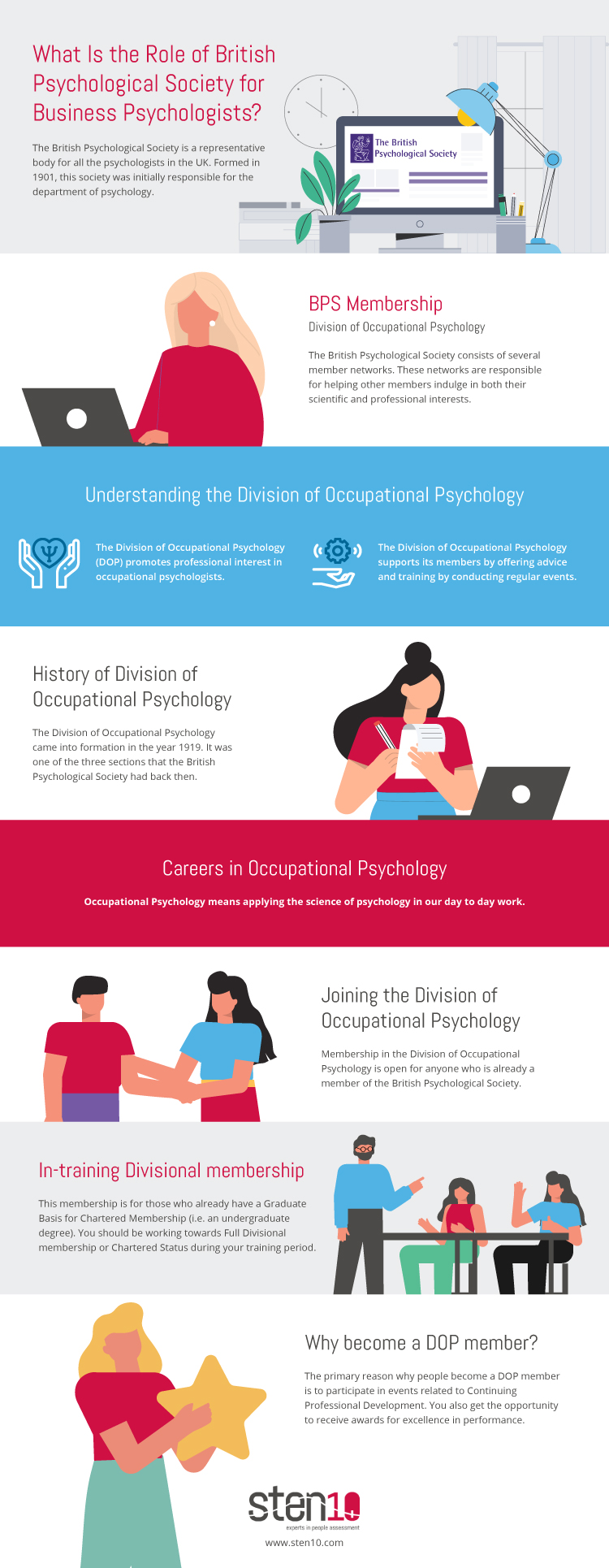The British Psychological Society is a representative body for all the psychologists in the UK. Formed in 1901, this society was initially responsible for the department of psychology. Soon, it became popular and psychologists in the UK also started to join this organisation. Now, it has nearly 43,000 members and it got a Royal Charter grant in 1965. This made the society even more powerful. It became responsible for the development and promotion of applied psychology.
Psychologists started promoting the usefulness and efficiency of the society by maintaining high standards of education. Their aim was to:
- Encourage the nurture and development of psychology for the career of enthusiastic students. It became one of the essential subjects because of its scientific discipline and also because of its popularity as an applied profession.
- Raise the standard of education, practice, and training in the field of psychology.
- Raise public awareness among people about psychology and also increase psychological practice in the society.
BPS Membership
Division of Occupational Psychology
The British Psychological Society consists of several member networks. These networks are responsible for helping other members indulge in both their scientific and professional interests. Any new member of the British Psychological Society must join one or multiple member networks to become an active participant of BPS. You can go through the membership process in detail in the BPS's official website.
Once you become an official member, you can join one of the networks below. Remember, your responsibility will be to water the interest of budding candidates so that they take up the membership, go through the entire training program, and develop psychology as their primary body of skill and knowledge.
- The Division of Clinical Psychology
- The Division of Academics, Researchers and Teachers in Psychology
- The Division of Neuropsychology
- The Scottish Division of Educational Psychology
- The Division of Counselling Psychology
- The Division of Occupational Psychology
- The Division of Sport and Exercise Psychology
- The Division of Educational and Child Psychology
- The Division of Health Psychology
- The Division of Forensic Psychology
Understanding the Division of Occupational Psychology
The Division of Occupational Psychology (DOP) promotes professional interest in occupational psychologists. It also supports the overall development of the profession in terms of career building, gaining skills, and knowledge about the subject.
The Division of Occupational Psychology supports its members by offering advice and training by conducting regular events and keeping them updated about the latest divisional news.

History of Division of Occupational Psychology
The Division of Occupational Psychology came into formation in the year 1919. It was one of the three sections that the British Psychological Society had back then. The society had nearly 49 members by 1927 which was a remarkable achievement considering the late introduction to the British Psychological Society. Professor Sylvia Shimmin was the first Chairman of the Division of Occupational Psychology and Gilbert Jessup was the honorary secretary.
Careers in Occupational Psychology
Occupational Psychology means applying the science of psychology in our day to day work. An occupational psychologist needs to develop skills in the following areas:
- Learning, development, and training
- Motivation, leadership, and engagement
- Wellbeing at work
- Psychological assessment
- Organisational change, work design, and development
As an occupational psychologist, you need to use psychological theories to come up with alternative approaches that offer organisations tangible benefits by developing the performance, improving the effectiveness of organisations, and boosting the wellbeing and motivation of people in a company.
Are you interested in taking up occupational psychology in your career? If yes, you need to enrol in one of the accredited BPS courses. This can lead to many career paths as a consultant, in-house with a firm or researching and teaching in the subject.
Joining the Division of Occupational Psychology
Membership in the Division of Occupational Psychology is open for anyone who is already a member of the British Psychological Society. If you have not become a member until now, you can apply for membership of the BPS and Division of Occupational Psychology simultaneously. Membership is available in three different grades depending on your qualification.
- Full Divisional membership
This is for all the fully-qualified psychologists eligible to receive Chartered Status. - In-training Divisional membership
This membership is for those who already have a Graduate Basis for Chartered Membership (i.e. an undergraduate degree). You should be working towards Full Divisional membership or Chartered Status during your training period. - General Divisional membership
This is an entry-level membership. You may not be eligible for the two memberships above. Every new member starts with a General Membership and then works his way up to get a Full Divisional Membership.
Why become a DOP member?
The primary reason why people become a DOP member is to participate in events related to Continuing Professional Development. You also get the opportunity to receive awards for excellence in performance. The highest honour or award that any member can get is the Practitioner of the Year award.
Additionally, you can also attend the annual conference that provides a balance between science and hands-on training skills you can apply in your day-to-day practice . You also get the quarterly newsletter ‘OP Matters’ that keeps you updated about the latest developments and advancements in this profession.



